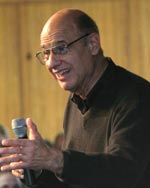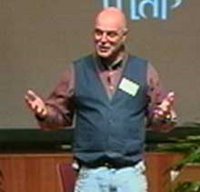 A quick intermission in the hospitality/incarnation series...
A quick intermission in the hospitality/incarnation series...1) My parents got me this really cool book for my birthday called The Quotable Lewis: An encyclopedic selection of quotes from the complete published works of C.S. Lewis. This book is awesome!
It's organized alphabetically by theme, so if you want a C.S. Lewis quote on, say, salvation...you just look up "salvation" and you find 11 quotes. Here's a quote from The Lion, The Witch, and the Wardrobe:
"Please--Aslan," said Lucy, "can anything be done to save Edmund?"
"All shall be done," said Aslan.
Or if you want something non-fiction, here's something from Mere Christianity:
We must not suppose that even if we succeeded in making everyone nice we should have saved their souls. A world of nice people, content in their own niceness, looking no further, turned away from God, would be just as desperately in need of salvation as a miserable world--and might even be more difficult to save.
For mere improvement is no redemption, though redemption always improves people even here and now and will, in the end, improve them to a degree we cannot yet imagine. God became man to turn creatures into sons: not simply to produce better men of the old kind but to produce a new kind of man.
2) The second thing I want to mention is this really great website my brother showed me last night: Techdeals.net. You need to check this site every day! They've got phenomenal deals on all kinds of stuff--mostly technology, but not only technology. And there's new stuff everyday!
I found a deal on a 1GB SD card for which I paid a total of $5.47 on Buy.com! That's after a $15 rebate and $20 off for checking out with my Google account.
Anyway, check it out--Techdeals.net.















